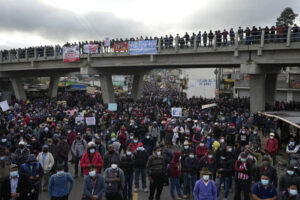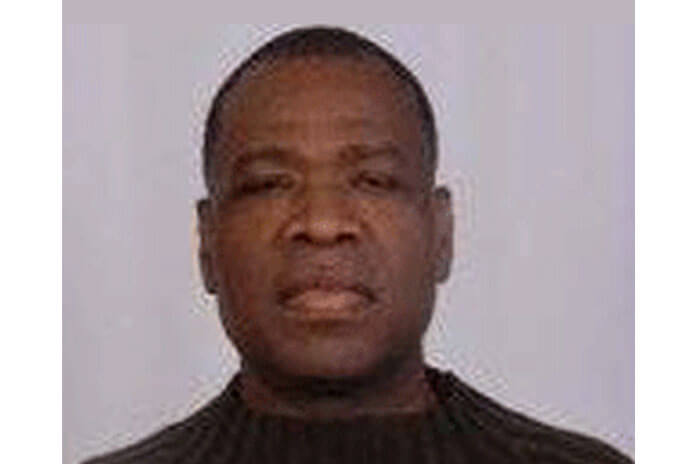Spain colonized Guatemala in the 1600’s, based on a follow-up to the Treaty of Tordesillas in 1494, and the British did the same to the country we know as Belize today after a treaty was signed with Spain to cut logwood and mahogany in 1763. Spain, Great Britain and the other European colonizers, destroyed the nations that existed when they colonized these nations and established their nations, borders and boundaries. The native people fought in defense of their nations, but they lost the wars to these colonizers.
The Maya people owned most of the territories in the Guatemala and Belize region. This was followed around 1802 by the migration from Honduras of the Garifuna people, who joined the Mayas in establishing the villages of Dangriga, Youngtown, Hopkins, Punta Negra, Robinson Point, Punta Gorda, Barranco and other settlements.
The Maya and Garifuna people were living in this region independently and autonomously without any support from the Spanish, British, Guatemalan or Belize governments. The Mayas and Garifuna people moved from one place to another without any interference from these colonial countries.
In 1821, when Simon Bolivar declared the Spanish colonies of Latin America and the Caribbean independent, Guatemala and Mexico were included in that group. The purpose of their Declaration of Independence was to end European colonial rule so that they could become free and independent nations of the world — only to discover that their new governments would do to them the same thing that their colonizers had been doing. This was after the Mayas’ territories were invaded by the Spanish and the British and the Garifuna territories were invaded by the Spanish, French and the British in their homeland Saint Vincent & the Grenadines and now in the country we know as Belize today.
Under Spanish colonial rule, Belize was divided in half. It was only from Quintana Roo Province, Mexico, to the Sibun River — the Spanish Governor in that province controlled that area. From the Sibun River to the Province of Peten, which now includes the districts of Stann Creek, Cayo and Toledo, those territories were under the jurisdiction of the Spanish Governor in Peten. When Mexico and Great Britain signed a treaty, they ceded all the lands from the Rio Hondo River to the Sibun River to Great Britain.

The Mayas fought against the Spanish and the British for their lands, but they were defeated. The war fought in Yucatan, Mexico, was known as the “Caste War,” which lasted from 1847-1901. The reason for this war was the Spanish’s legal caste system. Officials who were born in Spain were at the top, the Creoles of Spanish descent were second, the Mestizos were on the third tier, and the native Maya and other ethnic groups were at the bottom.
This war was a revolt by the native Mayas against people of European descent known as “Yucatecos”. The war ended when the Mexican army invaded the Maya capital by the name of Chan Santa Cruz in 1901. War continued against the Mexican government for attempting to take away the lands of the Mayas in Mexico and in the northern part of Belize. Many Mayas fled from Mexico into the districts of Corozal and Orange Walk.
Mexico signed a treaty with Great Britain in 1826 to establish diplomatic relations on April the 7th, 1897. They later signed a border treaty, ceding the lands from the Rio Hondo River to the Sibun River and northwest to the Village of Blue Creek in Orange Walk District, Belize, and La Union, Mexico. In 1859 Guatemala signed a treaty with Great Britain, ceding all the territory they acquired from Spain from the Sibun River to the Sarstoon River in the Toledo District and west to the Cayo District bordering the province of Peten and to the northwest in the village of Blue Creek, Belize and Dos Lagunas, Guatemala. The indigenous people, including the Mayas and the Garifuna people, are reasserting their rights to their lands all over the world. Most of the current countries that we live in today, were created through European colonialism, and they are not favorably accepted by the indigenous people. They were created and exist due to the Colonizer’s military might over the weak indigenous nations whom they continue to subjugate and commit genocide against, and whose basic human fundamental rights they continue to violate.
Millions of indigenous people have died and are still being killed in many of these countries when they assert their rights to what is truly theirs. There is a big difference between a claim by an existing colonially created modern nation state to territory, and the assertion by a precolonial indigenous people of their rights to their lands.
There can be a solution to this problem, by granting all the indigenous people and the nations that existed prior to colonialism, their independence, autonomy and nationhood status. This can be done with a new constitution that will grant these nations, proportional representation and autonomy over their people and lands.
If this is not done, then the Mayas, Garifuna and other indigenous people in the world, will continue to use their lands the way they have been using it, for centuries before the Europeans came to disrupt their lives in their territories. After all, they are being deprived of their own land by these new governments that call themselves democratic nations. The indigenous Maya and Garifuna people being deprived not only of their lands, but also of their basic fundamental rights, constitutional rights and basic governmental services to which they are entitled as born citizens of these countries.

